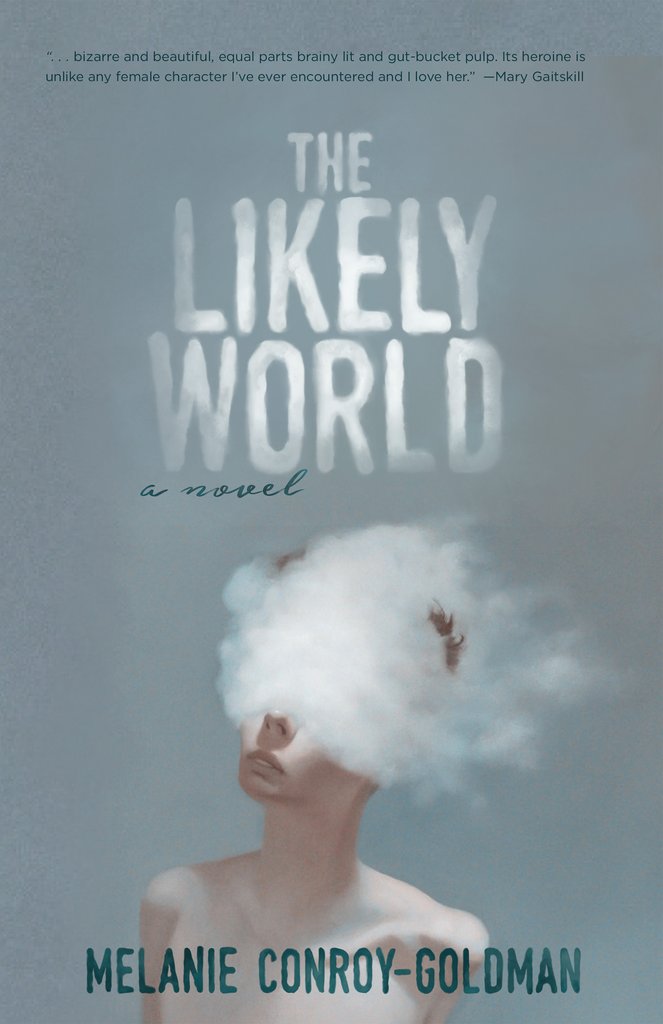
Mellie is in Boston in 2010, one month clean, raising Juni, her damaged toddler daughter, solo, and doing her best to stay off the memory-scattering drug “cloud” when a familiar SUV she can’t place pulls into the driveway, flicks a familiar cigarette in a familiar way, then pulls away before her memory can catch up. There are so many things she can’t remember, including who in the wide world Juni’s father might be.
Also, Mellie is a ninth grader in Boston in 1988 sounding like a ninth grader—smart-cadenced and hilarious and bored and awkward and full of conflicting desires, pretending not to be scared and scared; this Mellie is trying cloud for the first time: “Grow up,” she tells herself. “It’s a command. Grow up. Then, it’s a wish, an incantation. Grow up. Grow up. Grow up.”
Also, Mellie is in college in New York City circa 1993, her cloud addiction full-blown, her ethical center untangling; this Mellie is whip-smart and charming and also failing out of school and wild with abandon for an old flame. “It is twilight,” she writes. “In Morningside Park, a blue peculiar to this region of Manhattan descends. For a moment or an hour, the light of dusk and the light of the city are in equilibrium, and everything appears washed of detail. There are no angles, no edges. At my best, I am like this hour, blurred.”
Melanie Conroy-Goldman’s terrific debut novel The Likely World is all of these Mellies and more, shifting back and forth non-chronologically between time frames as whole swaths of Mellie’s memories disappear to the fictional memory-affecting drug. The plot twines around the dark, missing memories that Mellie tugs and tugs at, trying to uncover forgotten and yet looming mysteries that have made her what she is as her past starts to come after the loved people in her present.
The book’s characterization is driven by Conroy-Goldman’s luminous prose, which is hard to excerpt because its effects are cumulative and experiential, while the plot is driven by Mellie’s memory loss and its coincident narrative withholdings. It’s rare for a novel so formally innovative and so deeply literary at the level of the sentence also to be a real page-turner, and yet this novel is. The structural innovations of its storytelling, coupled with Mellie’s selective memory, lend the whole thing a clear detective-story feel. And yet the book will not settle easily into the detective genre, constantly disrupting generic expectations and shifting to a different mode.
Genre shifts ground in other ways too. Though the novel begins as speculative fiction, with its invented substances and the almost science-fictional parallel world that cloud addicts seek, it also reads like the memoir of an addict and therefore feels appropriate to our time as a clear-eyed and true, yet also empathetic, portrayal of addiction. It takes seriously its task of using its fictional elements to tell us something urgent and nonfictional about ourselves and about our world.
Too, the way the narrative echoes backwards, sometimes mimicking earlier syntaxes of important sentences from previous chapters, the way images recur like premonitions, along with snippets of key words and characters, gives you the feeling of being high on cloud yourself, of being right at the edge of rational sense, almost able to catch the flickering connections between things, to scratch some vague itch of intuition, of being sure you remember something but unable to place where the memory comes from or what it means. It’s like having all the scattered pieces of a puzzle before you, but not the picture quite yet.
Through it all, Mellie’s pitch-perfect, gorgeously articulated voice feels true to itself in each individual time frame, each iteration carefully crafted as a different incarnation of the same person. These Mellies are continuations, but un-identical. They are also disruptions, isolated from one another by the blurring effects of cloud. (It’s worth mentioning that the writer’s name too is a kind of Mellie.) The novel moves back and forth between lively humor and swooned-up love, parental shame and human grief, the beautiful and the disturbing, the hilarious and the heartbreaking, unsettling genre or ease any time we’re tempted into thinking we’ve got it all figured out. This is not an ordinary novel, as it skirts the borders of genre and voice in ambitious, experimental, and also deeply entertaining ways. No, The Likely World is its own world entirely.
***
The Likely World
by Melanie Conroy-Goldman
Red Hen Press, 368 p.
Follow Vol. 1 Brooklyn on Twitter, Facebook, and sign up for our mailing list.
